This is a series that I worked on in conjunction with Bournemouth Food Bank in early 2013 to document the behind the scenes look at what goes on in the establishment. The project was undertaken to highlight the severity of the problem that an ever increasing amount of people face everyday within the local community along with bringing awareness to people who would otherwise not know about such a place or problem.
More and more we are seeing people who aren't able to afford food because of rising living costs and cuts in certain benefit schemes that they may be a part of. Therefore with the ever increasing problem of poverty and hungar issues within the UK, places like this are there to help alleviate some of the strain that the problem causes.
Bournemouth Food Bank has helped over 6,600 people in the last year alone, supplying over 19 tonnes of food to those in need. Currently, the Food Bank is helping around 150 people a week on average, equating to over a tonne of food per week.
The food that is supplied in these packages will last three days and is intended to bridge the gap between the start of the crisis and the start of continued support being put in place.
The workers at Bournemouth Food Bank are all volunteers, giving their own time up on a daily basis to give back to the local community, each having their own reasons for doing so.
You can visit the Food Bank website on the following link.

The amount of food vouchers exchanged for food in the previous weeks. Each individual is allowed to have up to 3 food parcel's in a 6 month crisis period. Some people can access more if the professional doing the assessment is sure there is a need and that there is no other option for the client, they are as careful as they can be not to enable clients into bad money management.
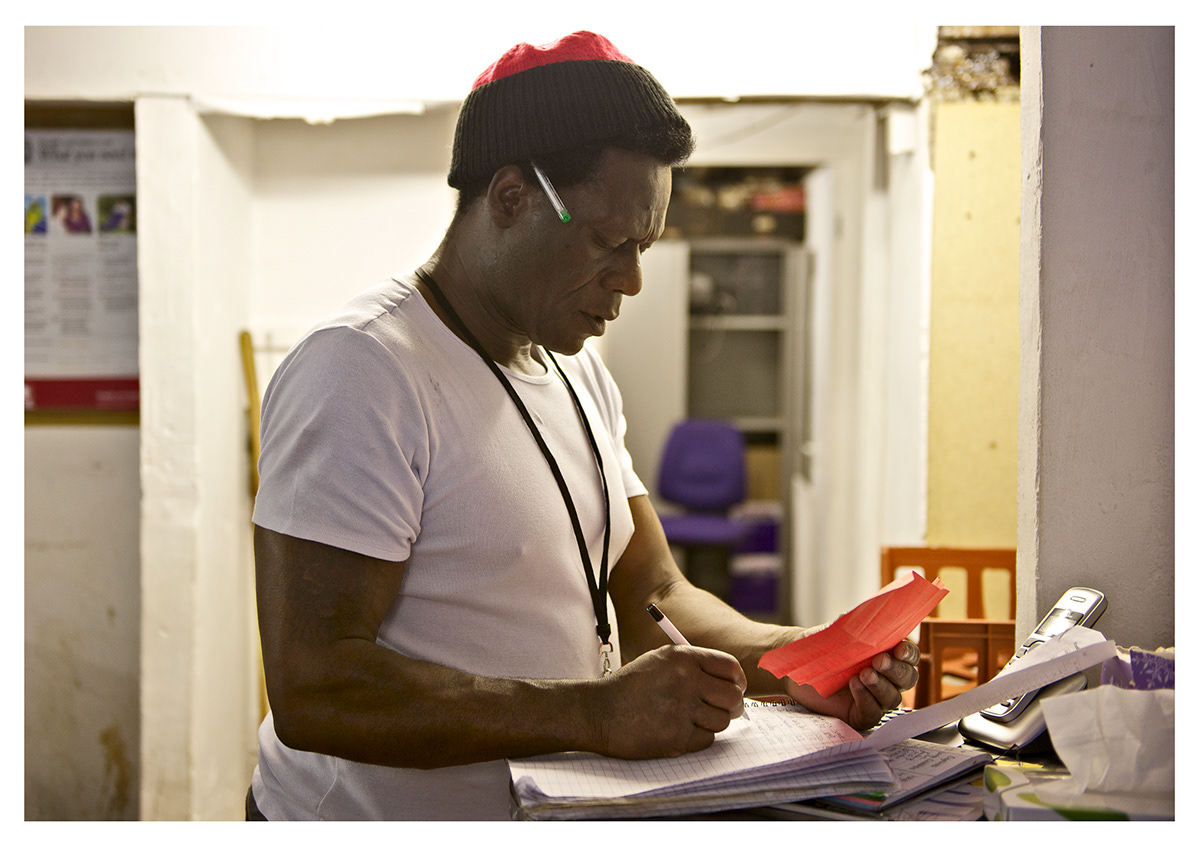
Because of the problem of forged food vouchers, records have to be kept of who has visited and how many times.

The amount of food donated per week varies considerably from week to week. If they manage to get a supermarket collection they can get about ¾ tonne of food plus however much is donated through churches and members of the public.
It can be anything from a few kg's to over a tonne per month however, they have other times where they have to go out and purchase food themselves from the monetary funds donated because of a lack of food donations.
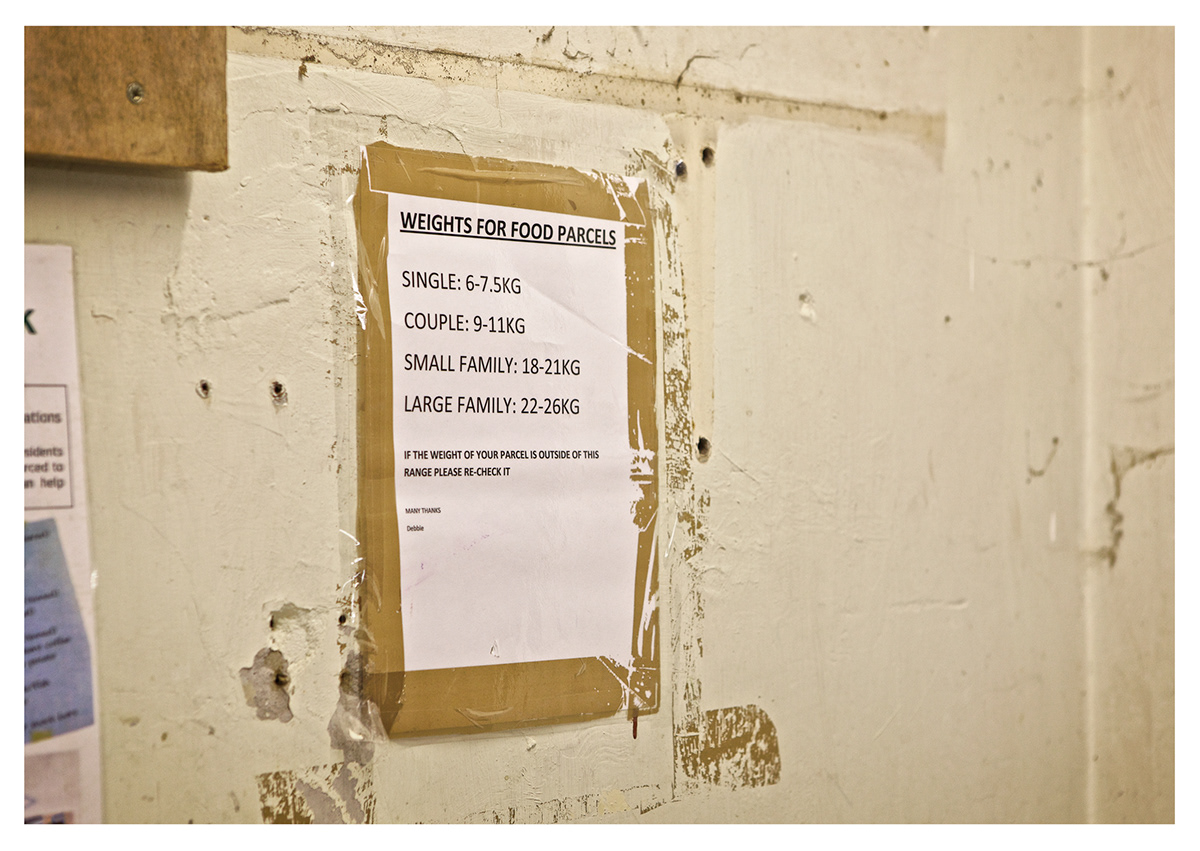
Each food parcel is measured by weight, depending on which category the recipient falls into depends on how much food that they will recieve. The parcel's are weighed when made up and then again before handing out to make sure that nothing has been taken out or added.
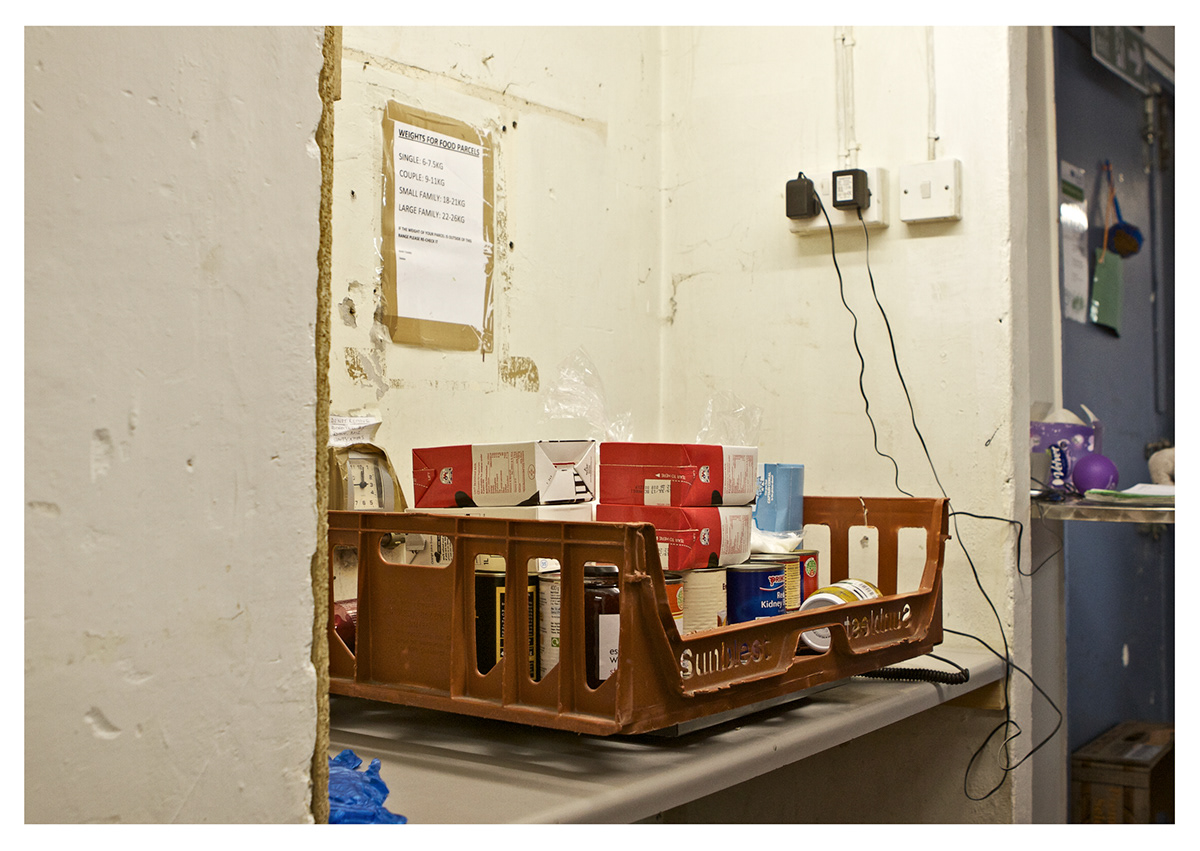
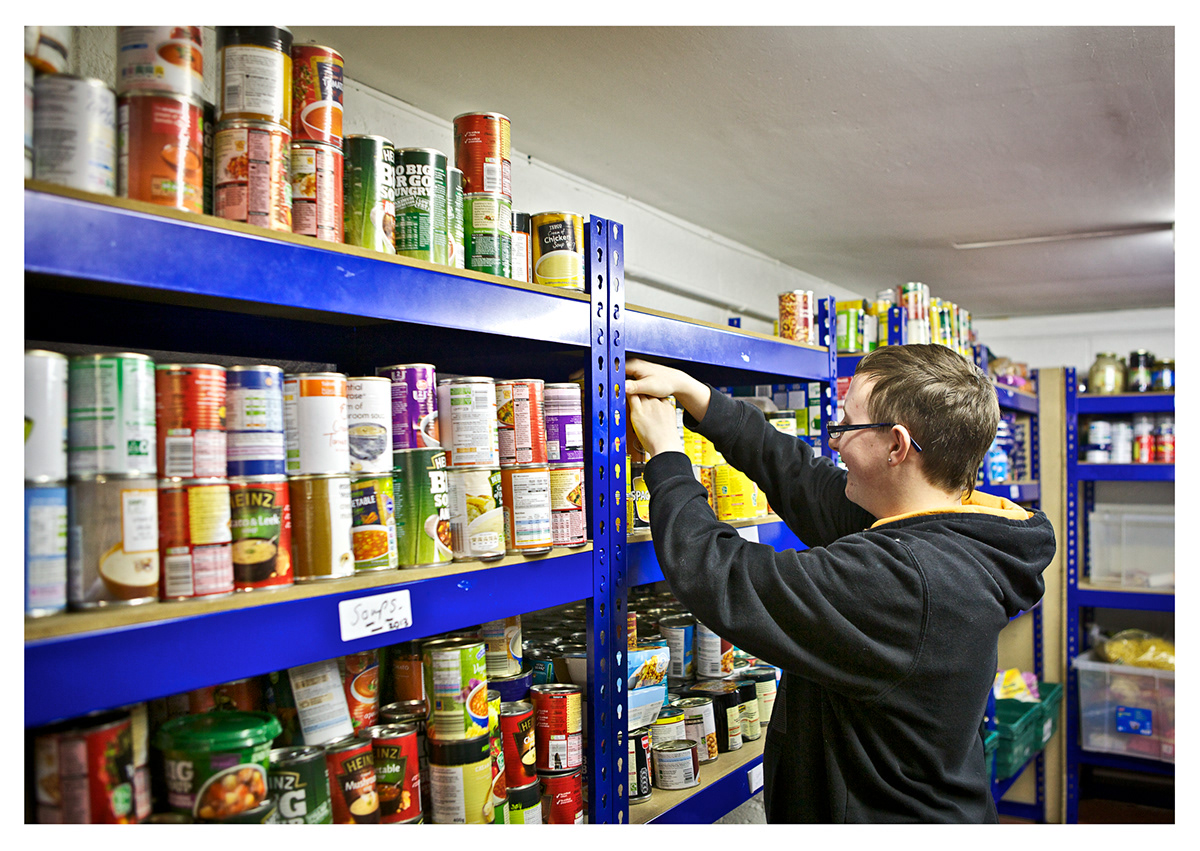
In terms of the workforce, the manager (Debbie) is the only paid worker and there are approximately 10 regular volunteers and then about 20 more casual volunteers, these come and go depending on health and work situations. Out of the 10 regular volunteers, 3 have learning difficulties; then out of the remaining casual volunteers about 50% have learning or mental health issues.
The Food Bank supports them through relationship. Getting to know them as individuals, going alongside them, offering a listening ear, support, friendship, fun and laughter and a safe place to be themselves is key to raising confidence, self esteem, giving routine and structure in a gentle non threatening manner helps them develop self discipline. The work they do gives them the feeling that they are doing something worthwhile and helping people, which gives their lives a purpose and meaning. All these things help them with their CV’s and gives them skills and confidence to succeed in the workplace outside of the Food Bank.
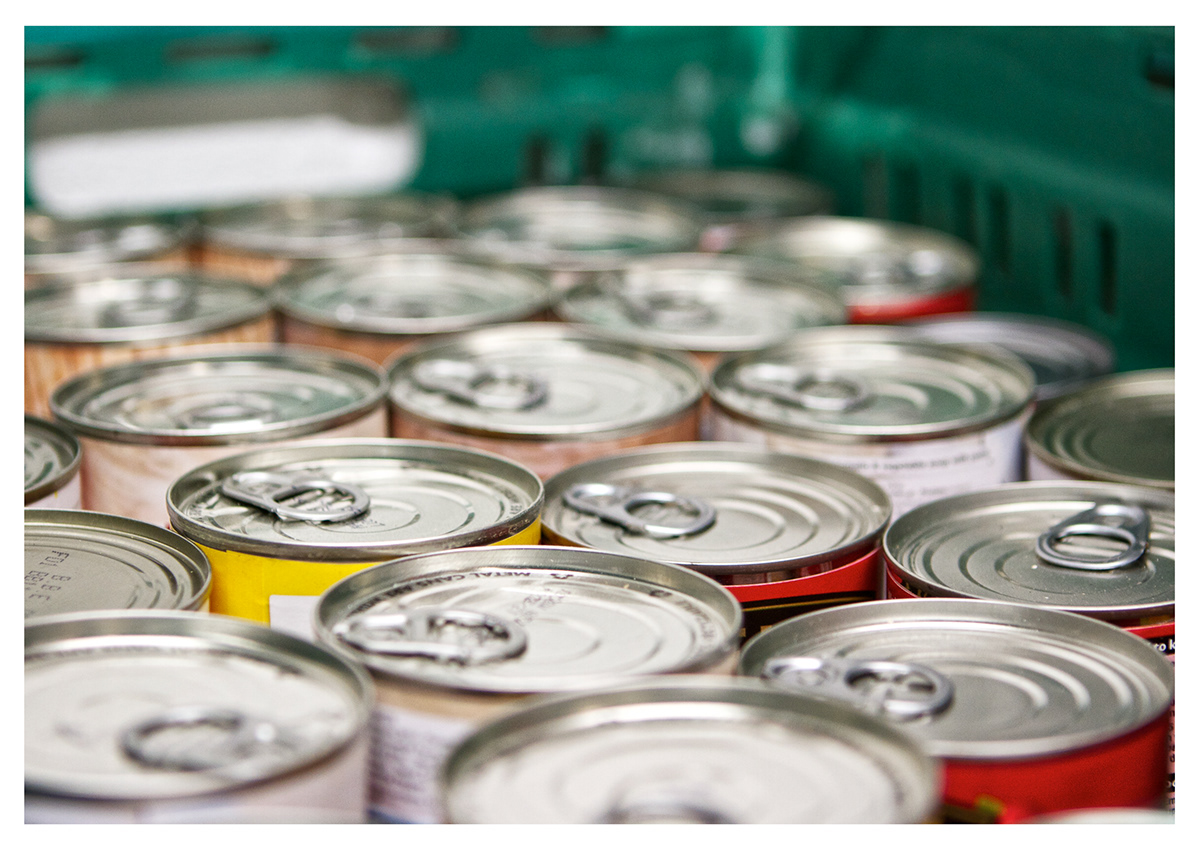
Traditionally Churches have been one of the mainstay donors for the Food Bank. While they still are, there is more and more publicity around the hidden poverty and hunger issues now which has produced an increase in ‘drop in’ donors and companies fundraising.
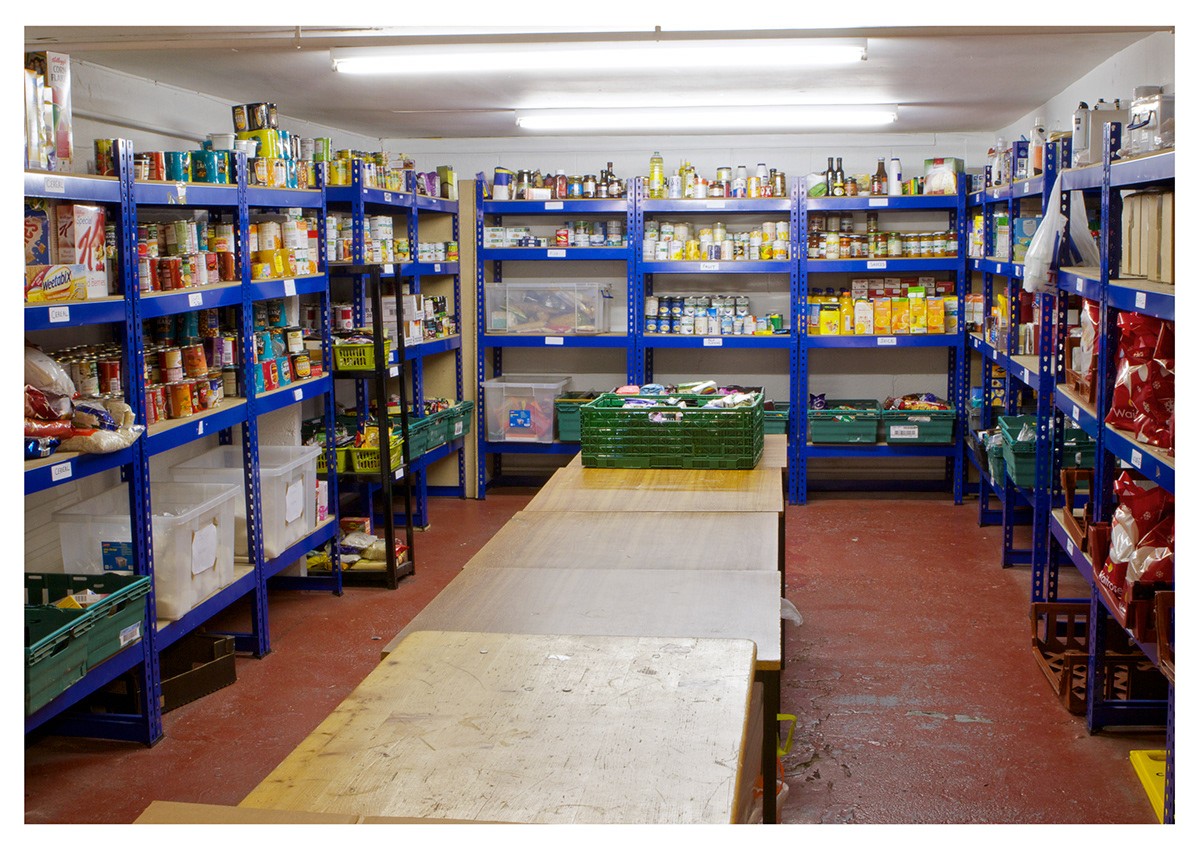
The Food Bank manages to currently do around one collection per month at a mainstream suppermarket such as Waitrose, Sainsburys, etc. to try and bring in some extra food. However, the key to gaining more food is increased publicity and food drives, they are seeking more support from the business world both in terms of financial help and looking for food.


It is really easy to become a volunteer at the Food Bank, all people need to do is visit us or e-mail and they will try to come up with something that suits everyone involved. There is a small amount of paper work to fill out and read but that is really all there is to it.



